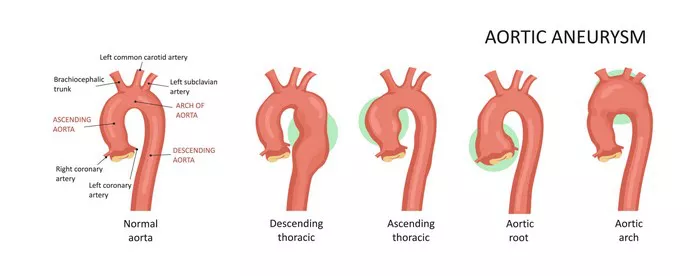An enlarged aorta, also known as aortic dilation or aortic aneurysm, can be a concerning condition that raises questions about life expectancy and quality of life. The aorta is the main artery that carries oxygen-rich blood from the heart to the rest of the body. When it becomes enlarged, it can pose risks such as rupture or dissection, which are potentially life-threatening. However, with proper management and lifestyle adjustments, many individuals with an enlarged aorta can indeed live a long and fulfilling life.
Before delving into the prognosis and longevity associated with an enlarged aorta, it’s crucial to understand what causes this condition and how it is diagnosed. An enlarged aorta can result from various factors, including:
1. Genetic Predisposition: Some individuals may inherit a predisposition to develop aortic dilation, such as those with Marfan syndrome, Ehlers-Danlos syndrome, or other connective tissue disorders.
2. Aging: The natural aging process can lead to changes in the structure of blood vessels, including the aorta, making them more prone to dilation.
3. High Blood Pressure: Chronic hypertension can place excessive strain on the walls of the aorta, contributing to its enlargement over time.
4. Atherosclerosis: Buildup of plaque in the arteries, often associated with high cholesterol levels and unhealthy lifestyle habits, can also impact the aorta’s size and function.
5. Trauma or Injury: Aortic enlargement can occur as a result of trauma or injury to the chest or abdomen, leading to weakening of the aortic wall.
Diagnosis and Monitoring
Diagnosing an enlarged aorta typically involves imaging tests such as ultrasound, CT scans, or MRI scans. These tests help determine the size of the aorta and identify any abnormalities in its structure. The diameter of the aorta is a critical factor in assessing the severity of dilation and guiding treatment decisions.
Once diagnosed, individuals with an enlarged aorta require regular monitoring to track changes in size and assess the risk of complications. This often involves periodic imaging studies and consultations with a cardiovascular specialist.
Prognosis and Longevity
The prognosis for individuals with an enlarged aorta depends on several factors, including the underlying cause, the size of the dilation, the presence of other cardiovascular conditions, and the individual’s overall health and lifestyle. It’s essential to note that not all cases of aortic dilation progress to a point where they pose significant risks.
1. Small Aneurysms: Aortic dilations that are small in size and stable over time may have a relatively low risk of complications. With proper monitoring and management of risk factors such as hypertension and high cholesterol, individuals with small aneurysms can lead normal, active lives.
2. Moderate to Large Aneurysms: As the size of the aortic dilation increases, so does the risk of complications such as rupture or dissection. However, prompt medical intervention, including medication to control blood pressure and surgical options such as endovascular repair or open surgery, can significantly reduce these risks and improve prognosis.
3. Underlying Conditions: Individuals with genetic syndromes associated with aortic dilation may require specialized care and ongoing monitoring to address the underlying cause and manage related health issues. Collaborative care involving cardiologists, geneticists, and other healthcare professionals is crucial in these cases.
Lifestyle Modifications
Living a long and healthy life with an enlarged aorta often involves making lifestyle modifications to reduce stress on the aorta and improve overall cardiovascular health. These modifications may include:
1. Maintaining a Healthy Weight: Excess weight can increase strain on the heart and blood vessels, so maintaining a healthy weight through diet and exercise is important.
2. Regular Exercise: Engaging in regular physical activity can help lower blood pressure, improve circulation, and reduce the risk of aortic complications.
3. Healthy Diet: Consuming a balanced diet rich in fruits, vegetables, lean proteins, and whole grains can support heart health and manage cholesterol levels.
4. Smoking Cessation: Smoking is a significant risk factor for cardiovascular disease and should be avoided to reduce further damage to the blood vessels.
5. Stress Management: Practicing stress-reducing techniques such as meditation, yoga, or deep breathing exercises can help lower blood pressure and improve overall well-being.
Conclusion
In conclusion, living a long life with an enlarged aorta is possible with proper medical care, lifestyle adjustments, and ongoing monitoring. Understanding the underlying causes, managing risk factors, and following a heart-healthy lifestyle are key factors in improving prognosis and quality of life for individuals with this condition. Regular communication with healthcare providers and adherence to treatment recommendations can help mitigate risks and promote longevity.

